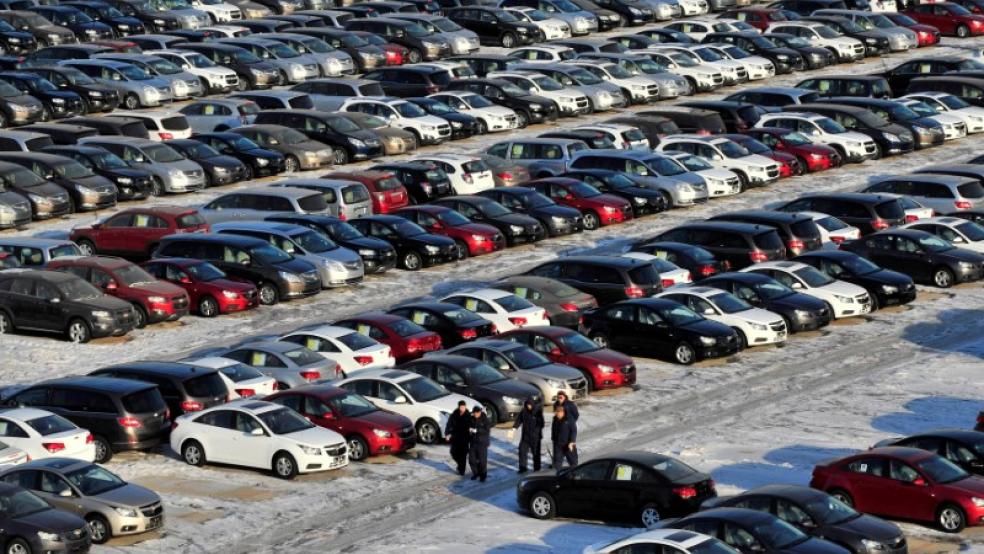Saying he intends to protect American jobs and strategic industries, President Joe Biden on Tuesday announced major increases in tariffs on a range of goods imported from China, including electric vehicles, semiconductors, solar panels, steel and aluminum.
The increases, which affect about $18 billion worth of goods, vary by product. The tariff on electric vehicles will rise to 100%, a fourfold increase from current levels, while the tariff on semiconductors will increase from 25% to 50%. Steel and aluminum will see an increase to 25% from a current range of 0 to 7.5%, and the tariff on solar cells will jump from 25% to 50%. Other products seeing tariff increases include lithium-ion batteries (25%), ship-to-shore cranes (25%), syringes and needles (50%) and rubber medical gloves (25%).
Biden also endorsed maintaining the tariffs imposed during the administration of former President Donald Trump, which apply to roughly $300 billion worth of goods imported from China per year. According to US Customs and Border Protection data cited by CNN, those tariffs have generated roughly $235 billion in payments from American businesses and consumers since they were imposed in 2018 and 2019.
Biden said his decision on tariffs was driven by a desire to support good jobs and defend key industries at home, in a global market in which China unfairly boosts its own firms. "China heavily subsidized all these products, pushing Chinese companies to produce far more than the rest of the world can absorb,” Biden said at the White House. “And then dumping the excess products onto the market and unfairly low prices, driving other manufacturers around the world out of business.”
“China is determined to dominate these industries,” he said on social media. “I'm determined to ensure America leads the world in them.”
The political battle: Biden and GOP presidential frontrunner Trump traded barbs over the policy move. Biden had previously criticized Trump for imposing tariffs on Chinese goods, saying they hurt U.S. farmers, consumers and manufacturers, who are forced to pay higher prices for imports.
Trump, who has sung the praises of protectionist policies against China and promised to impose more tariffs if he wins a second term in office, accused Biden of moving too slowly. “Where have they been for three-and-a-half years? They should have done it a long time ago,” he said.
Biden accused Trump of wasting an opportunity, saying his tariffs were less effective than they could have been because he did little to nurture strategic industries in the U.S., unlike the current administration, which has promoted significant investment through legislation including the Chips Act and the Inflation Reduction Act. “My predecessor promised increased American exports and boosted manufacturing,” the president said. “But he did neither. He failed.”
The tariff conundrum: Some critics of the Biden tariff decision echoed earlier complaints about the Trump tariffs, including the charge that they function as a tax on consumers that will delay the implementation of much-needed environmental policies and technologies. “This is horrible news for American consumers and a major setback for clean energy,” said Jared Polis, the Democratic governor of Colorado. “Tariffs are a direct, regressive tax on Americans and this tax increase will hit every family.”
But some on both the left and the right said tariffs are needed to protect U.S. participation in the industries that will define the future. David Dayen, executive editor of progressive magazine The American Prospect, said that Biden’s effort at industrial policy makes the tariffs a necessity, at least in the short run. “[I]f you’re the White House, and you’ve just committed hundreds of billions of taxpayer dollars to creating a homegrown electric-vehicle industry and an entire ecosystem of batteries and minerals around it, you might want to make sure that commitment doesn’t go completely to waste,” he wrote.
Still, tariffs alone won’t create the businesses of the future. “Domestic auto producers have to rise to the moment,” Dayen said. If the industries protected by tariffs fail to invest properly and use them instead to simply raise prices and collect larger profits, then the policy could end up hurting U.S. consumers while acting as a drag on global economic growth.
Economy
Biden Announces Huge Increase in Tariffs on Chinese Electric Vehicles, Semiconductors

Sheng Li



